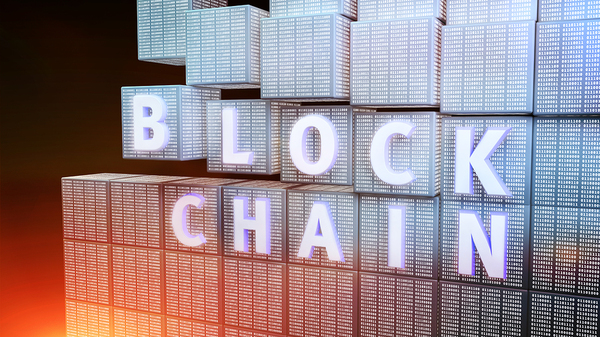Blockchain is shaping up to be one of the biggest stories of 2018. The total volume of investment in global bitcoin and blockchain financing, according to Business Insider Intelligence, rose from $93 million in 2013 to $550 million in 2016, a jump of over 490% in just three years. (Bitcoin is one form of cryptocurrency, the digital exchange used in blockchain.) This massive boom has lead to more people choosing to buy Bitcoins with credit or debit card in a hope that they will be able to profit from their investment.

Penetration of blockchain is expected to be as far-reaching as the introduction of the internet.
But what is “blockchain” and why is it growing? If you’ve heard the term used only in passing, the reason for growth might seem unclear.
Well, it’s one of the biggest potential disruptors to digital business going forward. In fact, many observers, including experts at MIT’s Sloan School, believe that the effects could be as large and far-reaching as the introduction of the internet itself.
Let’s take a look at what blockchain is, why it matters, and how it will change life going forward.
Understanding Blockchain Is Key
Blockchain can be conceptualized as a type of database, where each entry has to be verified. It’s made secure by a mixture of cryptography spiced with game theory.
Business Insider likens blockchain to a Google Document, which, as most digitally literate folks know, is easily shared among involved parties. It’s just that blockchain can handle material that needs to be highly secure because of its encryption.
Now for blockchain’s use and its importance. The exciting piece of blockchain is that it has the potential to bring the ease and convenience of the digital world to all sorts of movement and tracking of goods and services. That tracking can take place in almost any field, including currency, inventory, digital rights, intellectual property, identity, or property titles.
If you’d like assistance with establishing or managing a business that is based on a Blockchain system, you might want to speak to a blockchain expert such as Blockchain Built for more information.
How Banking and Blockchain Could Work: An Example
One of the clearest ways to see how blockchain would work is to look at banking. Right now, individual banks and governments’ central banks move currency and transfer money. Most banks are regulated, so the movement is cumbersome, centered in paper ledgers, bureaucratic, and costs a great deal of both money and time.
That’s the reason that, if you deposit a check, the funds often aren’t available for two or three days. Direct deposit, mobile banking, and services like PayPal have cut down on those times, but still, none of them make money available in real time. A deposit made does not equal a deposit available immediately.
But it would save a great deal of time if banks used blockchain.
Banks know this, as well, which is why banks expect to move into blockchain. Business Insider Intelligence reports that 15% expect to have blockchains in commercial production and at scale this year.
But between 2018 and 2020, 51% of them expect this. The remaining 34% expect to have it after 2020.
And banks are just the beginning. Businesses and the Internet of Things (IoT) can deploy blockchain in their supply chains. Medical systems and hospitals can use it for patient records. It could even disrupt publishing, allowing people to pay only for articles they read rather than entire magazines, because of the ease of tracking.
Blockchain has the potential to cause disruption for many industries. Some, like finance, will see the disruption sooner than others.
